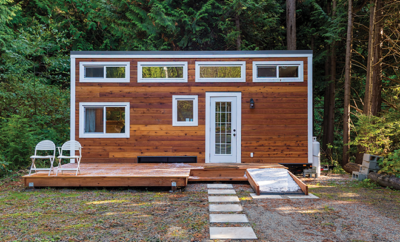
Smart Money: Sell or Rent your Home?
Are you ready to become a landlord? Thinking of renting your house instead of selling it? Is it the best course of action for you?
There are plenty of good reasons to rent out your house, especially if you don’t need to sell it in order to buy another home. Plus, if your house is in a good area and you feel certain the property’s value will continue to increase, being a landlord may prove a wise investment for you.
So it follows that if your house is a good investment, and the market is not conducive to selling right now, renting may make sense. If your house is in pretty decent shape, repairs may prove to be minimal along the rental route, too.
Be sure to study the marketplace before making the decision to rent instead of sell. Get a handle on area home prices. Talk to real estate agents to be sure you have up-to-date and accurate information. You may be surprised to learn it makes sense to go ahead and sell your house after all.
If your house is underwater, meaning that you owe more than you can sell it for, renting for a while may make financial sense, at least until the market recovers. Just remember when your house is eventually sold and it’s been used as a rental, most states will count a portion of the sales price as earned income after a certain period of time and this could increase your tax liability. It’s always best to check with your accountant before making the decision to rent or sell.
Of course, there is more to this decision than plain economics. You need to analyze your tolerance for risk. Your house is a very personal asset. You’ve lived in and loved your house for quite some time, and seeing a stranger move in may be an emotional experience for you. No tenant is going to care for your house like you have.
In addition, renting requires a time commitment unless you hire a professional management company to do all the work. As a landlord, you will receive calls at inconvenient times to handle repairs and emergencies. All properties, whether they’re houses or condominiums, will require your time and attention. There’s nothing worse than being on vacation in another country and getting that dreaded repair call from your tenant!
Indeed, most experts agree that the biggest issue facing you as a landlord is choosing the best tenant. Even if you believe you’ve found the perfect tenant, beware. Just because they donate time and money to your church does not mean they will be a good tenant. Before renting your house, you need to check on the prospective tenant’s past and present employers, former landlords, present income and monthly debt obligations, credit scores, criminal record and personal references. Verify the number of occupants who will live in the home and whether there will be pets present. If your tenant is typical, at some time or another, they will fail to pay their rent during the lease period.
If all of this sounds too daunting, you can always hire a professional management company. Property managers usually charge up to ten percent of the monthly rent, but they will do all the work for you, including advertise the house, sift through potential tenants, negotiate rental contracts and leases, collect security deposits and monthly rents, handle property inspections and repairs and work through legal issues such as evictions and debt collections. Note that some management companies will handle the repairs but may tack on a contractor’s fee on top of the actual amount charged by subcontractors. You will be given monthly financial reports along with your rent check disbursement. At the end of the year, you’ll have a 1099 to file your taxes.
Property management companies are also up to date on local, state and federal regulations such as the Fair Housing Act, which covers landlord-tenant issues. There may be recurring fees to pay that you may not want to hire an accountant to handle, such as property taxes or HOA dues.
Of course, having a management company doesn’t let you off the hook completely. Only you, as the owner, will care enough about your house to keep it up. You have to be organized and on top of the management company’s activities to be sure your house is secure at all times.
But if you have found a good tenant and have mastered the role of landlord, having someone in your home to care for it and pay the utilities while you are living in another home could mean you will have money coming in to help offset your mortgage or rental expenses. Then, when it comes time to sell your rental home, you will reap even more of your just rewards. ■
Sources: forbes.com, realtor.com and zillow.com.







